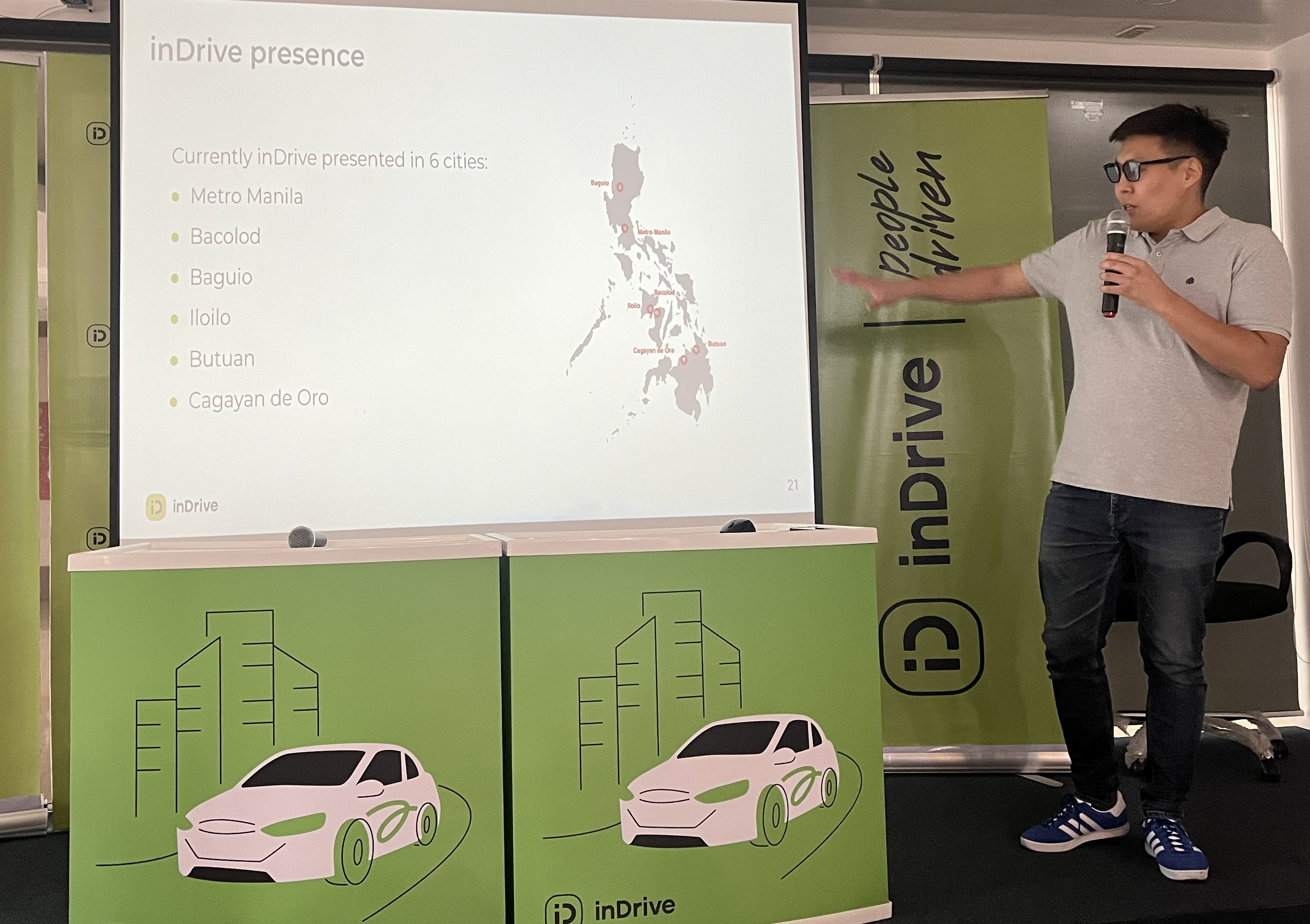
NAVRO'S CULTURE BUILDS A PSYCHOLOGICAL SAFETY NET IN A FAIL-FAST INDUSTRY
"Do hard things, fast." That's the motto at Navro. The London-based fintech company, formerly known as Paytrix, was founded by Aran Brown and Eddie Harrison in 2022 and developed the world's first payment curation platform.
The company helps businesses expand in global markets by providing access to the best payment infrastructure around the world through a single platform so that, for example, a business in the U.K. can easily sell to customers in Brazil.
The Navro payment curation platform offers a local collection of accounts and real-time payment rails, the underlying infrastructure and systems allowing for the transfer of funds between parties that enable the safe movement of money both domestically and internationally.
As the company has grown in the past few years, its leadership understands that innovation and success should never come at the cost of quality for both clients and employees.
"We focus on quality as a business—we don't take shortcuts," Harrison, who serves as Navro's chief product officer, told Newsweek. "Across the whole business is this concept of doing the hard thing, doing it fast but doing it well. We are focused on quality, and you can't just take that approach to financial networks or regulators, you have to take it across the organization. And that includes our employees and how they feel."
Navro was recently listed as the top company on Newsweek's second annual ranking of the Global Most Loved Workplaces. Newsweek partnered with the Best Practices Institute to compile the list based on BPI's Love of Workplace Index analysis of employee-provided data, online ratings and interviews with company officials.
BPI founder and CEO Louis Carter told Newsweek that Navro's top position was due to the company's "transformative approach to creating an employee-centric culture, strategic growth and innovative payment solutions."
"The company's dedication to inclusivity, recognition and continuous improvement ensures that it remains a beloved workplace where employees feel valued, supported and motivated to excel," Carter said. "By fostering a culture of diversity, authenticity and radical candor, Navro attracts and retains top talent, setting a benchmark for workplace excellence globally."
At the center of Navro's culture is Chief People Officer Kel Hartman. As the person responsible for the treatment of employees, Hartman believes that the company culture doesn't fall squarely on the shoulders of leadership. Instead, it comes from everyone at the company.
"Culture is everybody," she said. "We're all responsible."
Harrison calls Hartman "a whirlwind" and credits her with building Navro into a place where people want to work.
"We want a culture where people feel safe so they can be their genuine selves but also work hard to achieve things," he said.
Having a good culture is not just for show, to boast about in an interview. It is critical to the success of the business. Hartman said having a compassionate culture doesn't mean the company isn't expecting employees to work—companies can be fun and supportive while also holding people accountable and bringing in "top people who want to work with top people."
At previous jobs, Hartman said she experienced firsthand how a lack of psychological safety meant people weren't fit to bring their best selves or their best ideas to the table.
"I've been in that situation where I'm too worried about the stress that I can't actually perform my job because I'm not focused," she said. "When I'm empowered, I'm engaged and I'm going to give 100 percent to the company."
Ensuring psychological safety requires establishing an inclusive environment at the core of all operations. This means actively supporting mental health and creating an atmosphere where employees can bring their authentic selves to work, which is thought to breed loyalty and engagement in the workplace.
Hartman said Navro is committed to embracing all forms of diversity, noting that the company is made up of "quirky people" who don't fit into a mold.
"If we're all the same, we're not going to get the greatest performance and we're not going to be a replica of our clients or our customers, who are very diverse in many ways," Hartman said.
There are also various employee resource groups (ERGs), including the Women's Development Program, which focuses on building confidence and creating a more supportive and inclusive work environment.
Nicola Richards is a scrum master who has worked at Navro for just over a year. She said she's involved with the Women of Navro ERG and a neurodiversity ERG.
In a largely male-dominated industry, Richards said she's usually one of only a few women at a company. Being around a more diverse staff, she said, brings more ideas and perspectives that not only make employees feel heard and supported but drives better work.
"[The Women of Navro ERG] is just another supportive space for employees to be able to share stories and have training," she said. "We've done outreach and tried to understand the challenges that everyone faces and try to create training based on that."
This includes people-driven leadership training for employees in various roles to reinforce the idea that everyone is a leader, even those in nonmanagement positions, Richards said.
In recent years, Navro has also worked to improve its hiring practices. Richards said there was a push to feature more inclusive language in job postings and a diverse array of employees on hiring panels so that prospective employees can "feel comfortable in the room being interviewed because there's people [who] look like them and potentially have similar backgrounds."
Chief Product Officer Harrison said he is acutely aware that the company was founded by two white guys—like many other companies in the fintech industry.
"We've been conscious to make sure there are forums for those [employees] who don't look like us or feel like us or have the same background as we do so that they can be heard," he said. "We want to try and redress that balance while still hiring the best people for business."
Harrison said he and Brown are keen to hire people who are better than they are in various ways.
"We don't just like to hire people who are smarter than us, we like to hire people who will hold us accountable as founders," he said. "This isn't a dictatorship."
At Navro, leadership encourages employees to share their ideas and feedback through various means, including team meetings, one-on-one sessions, surveys and during pitch days when employees can present directly to the founders.
Hartman said a recent companywide survey found that over 80 percent of people at Navro feel that they could challenge their manager and senior members. She credits that stat to Navro's ability to build a workplace that is comfortable with disagreement and to its approachable executives.
"We can challenge ideas without fear of repercussion," she said. "We don't have to agree with the senior executives because they've got an idea. We can challenge that. In fact, they love that."
Not only does that provide space for innovation and improvement, but it also ensures everyone's voice is heard and valued, which helps foster constant employee engagement and companywide improvement.
The collaboration between upper management and the rest of the staff does not only occur when debating various ideas. One thing that sets Navro apart from other companies is the transparency and openness from leadership.
Hartman said when she first started at the company, she flew to each of Navro's seven locations around the world to meet every employee. She said she was vulnerable with people, sharing personal stories about herself, her anxieties, battles with mental health, times when she screwed up and when she experienced feelings of imposter syndrome. And the founders are the same way, she added.
"They share their own struggles and we build an organization where the executives are approachable to everyone," she said.
The level of sensitivity extends to the company's daily operations. At Navro, employees know that making an error won't cost them their jobs. Hartman said the lack of "blame culture" at Navro means people can make a mistake and learn from it, with the support of the entire staff.
At a tech startup, scrum master Richards said things are constantly changing. Being flexible and understanding that employees "can't be 100 percent all the time" is necessary for the work they produce.
"We want to try lots of things so we might fail fast," she said. "We're trying different ways of working [and] it might not work, we might take a step backward but that's fine. We've learned from it and we'll communicate that and build a better way of working or a better product because if it."
As the chief people officer, Hartman focuses on working closely with employees to ensure programs and initiatives are people-led and people-driven.
"Once someone told me that the worst thing that you can do in HR is drive initiatives that no one wants, and that really sat with me," she said. "So everything comes from feedback from our people."
Navro offers generous benefits, like unlimited therapy, 39 weeks of maternity leave and paid compassionate leave that covers events such as bereavement, breakups, menopause and pet deaths. Harrison said employees don't abuse the leave practices; in fact, they have to be encouraged by leadership to take needed time off.
Other benefits include flexible remote and hybrid work options, leadership and other professional development workshops and paths to promotions.
Navro runs leadership workshops and other programs to improve work-based skills like giving a presentation or negotiating a salary, as well as mentoring.
For Harrison, he is realistic about his goals for the company. He said the main goal is to grow the startup into a bigger business and let everything else fall into place from there.
But as the company grows, Harrison understands that everyone working there today might not be there in the future. What he hopes, then, is that Navro becomes a bright spot on his employees' résumés so that when they do eventually leave the company, they can move on to greater endeavors.
He said that he and co-founder and CEO Aran Brown "get a kick" out of seeing someone who worked for them go on to have a fantastic career beyond Navro. He's excited for the potential for early hires to move on to build their own businesses.
"The goal is to make Navro successful but also well-liked and well-rounded [so that it's] the best line item on someone's LinkedIn as an experience," Harrison said. "People will be headhunted because they've worked here."
Related Articles
2024-06-27T23:58:05Z dg43tfdfdgfd











